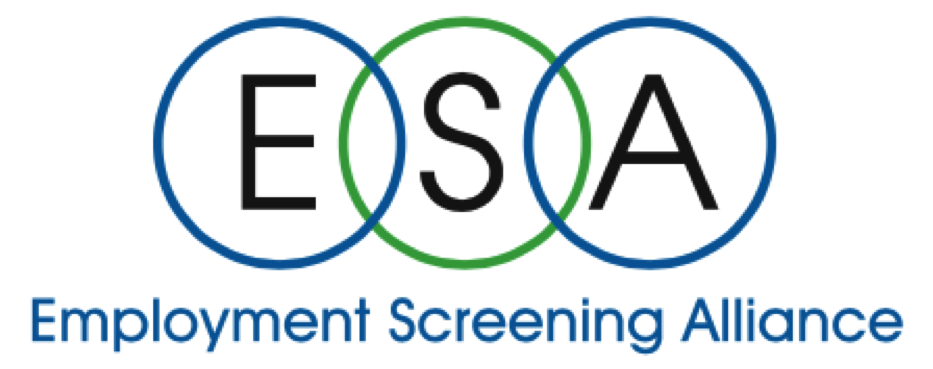
by Employment Screening Alliance | Sep 12, 2016 | Background Screening
Background Screening | Should You Be a Job Reference? Pt. 2
Background Screening | Because employers increasingly recognize the powerful need for the right soft skills on the job, the reference check is being elevated in the hiring hierarchy. This means that you are likely to both need job references more frequently in the future – and that you will be called upon to provide references more frequently as well.
It’s also important to point out that many states have rewritten the laws that protect references when they provide candid feedback. This is another reason why it’s easier for references to reassert their central role in the recruiting and hiring process.
Even though serving as a job reference can take some extra time that you may not have – do it. You will be doing a valuable service for the person for whom you’re providing a reference, and potentially setting yourself up for reciprocal reference support down the road.
And by the way, giving references is going to get easier and easier because …
Technology Is Making the Job Reference and the Background Screening Experience Smoother, Better and More Candid
Job references fell by the wayside for many employers because of the limitations of reaching references by phone. References were often hard to contact and frequently felt constrained in what they could share because of human resources rules laid down by their current employers, suggesting that they shouldn’t provide any information beyond confirming dates of employment and other basic facts.
This has now changed dramatically. The next time you’re asked to be a job reference, it very likely could be through an online portal (perhaps even accessed from a mobile device) that ensures confidentiality. The emergence of online reference checking has opened up a whole new frontier for obtaining honest and detailed reference feedback.
This growing trend – plus the increasing desire by employers to better ascertain soft skills and past worker performance (since employers know that past performance is the best indicator of future results) – are coming together to bring reference checking back to the forefront of the job searching and hiring process. Be ready – this is another reason why you’re going to be needing more references in the future and will be asked to give more of them, as well.
The bottom line: Make time to give job references when you’re asked. It’s a better process than ever and for all the reasons outlined above, you’ll be glad you did. –US News
Learn what ESA can do for you! Call 866-830-3724 to discuss background screening services or complete the form on www.esascreening.com now!

by Employment Screening Alliance | Aug 19, 2016 | Background Screening, Fingerprinting
Fingerprinting | Can Employers Test for Prescription Drugs?
Fingerprinting | Many of today’s employers are concerned with the impact of prescription drugs on the workplace. After all, the use and abuse of prescription medications, like illicit drugs, can sometimes have negative effects on the workplace: increasing the potential for on-the-job accidents, impacting job performance, and providing a stronger impetus for workplace theft.
In some cases, safety issues can arise even if the medication is being used legally and as directed by a physician.
Employers know that the use and abuse of these medications is a serious issue that deserves their attention. In a recent 2011 survey by the National Institute on Drug Abuse (NIDA), nearly 20 percent of Americans older than age 12 reported using prescription drugs in a non-medical manner at some point in their lifetime.
NIDA also reports that prescription drugs are, after marijuana and alcohol, the most commonly abused substance in the U.S. Recently, the Centers for Disease Control and Prevention have classified this type of abuse as an epidemic and indicate that it is the fastest growing drug problem in the U.S., with one death every 19 minutes.
Prescription Drug Use in the Workplace
Furthermore, there is some evidence that prescription drug use and abuse is a growing problem in the workplace. According to Quest Diagnostics, a leading drug testing laboratory, there has been a marked spike in the incidence of employees testing positive for prescription opiates—more than 40 percent from 2005 to 2009.
Yet unlike illicit drugs, for which most U.S. employers can test easily and legally, prescription medications present a number of challenges to organizations. For one, the mere presence of these substances in a drug test does not constitute an offense, unlike with illegal drugs.-Hireright
Learn what ESA can do for you! Call 866-830-3724 to discuss fingerprinting services or complete the form on www.esascreening.com now!

by Employment Screening Alliance | Aug 15, 2016 | Background Screening
Background Screening | Generation Z Part. 1
Background Screening | Everyone is always talking about the Millennials. How to engage them; what they expect from their careers; and how to structure your recruiting plans to work for them. And, while you’re still trying to figure them out, a new age of people entering the workforce is upon us.
Born between 1990 and 1999, Generation Z is about to disrupt the workforce.
As a recruiter, it’s important for you to understand what makes this generation so incredibly different than anyone that came before them into the workforce. The unique traits of Generation Z will surprise, frustrate, and inspire you.
Here’s how to up your game before this group graduates from college:
What makes Generation Z so different from everyone before them?
You thought the Millennial crowd was an alien breed, and now you’re about to meet an entire generation that will tip the scales. According to a Robert Half study, released late last year, Get Ready for Generation Z, this is what makes them different in the workplace.
- They want to customize the rules;
- Training is ongoing and essential for them;
- Their learning style is technology-based;
- Face-to-face communication is preferred;
- Their approach to problem-solving is entrepreneurial;
- They like to make decisions as a team;
- Teaching is their most valuable leadership asset;
- For projects, they expect consistent and frequent feedback; and
- When it comes to change, they expect it.
-
64% of Generation Z candidates rank Career Opportunity as their #1 consideration
Generation Z is ready to dive in and do the work, but they may not take the job if it doesn’t clearly provide a career opportunity. That said, when you’re recruiting (unless you see a distinct focus on retail industries in the resume) save the seasonal positions at Target for the Millennials. Generation Z will be looking for something that not only educates them for future ventures, but provides a lot of room for growth.
In short, rather than thinking, “How can I apply my skills to help this company?” they are instead asking how the job can work for them, to help them meet their goals. You can apply this information by knowing to ask your Generation Z recruits what their long term goals are and how they think your organization can help them get there. That’s how you’re going to find out what you need to know to see if they are a good fit for your position. –Recruit Loop
Learn what ESA can do for you! Call 866-830-3724 to discuss background screening services or complete the form on www.esascreening.com now!

by Employment Screening Alliance | Jul 28, 2016 | Background Screening
Background Screening | 5 Not-So-Conventional Ways To Attract Talent Pt. 1
Background Screening | Startup CEOs, business owners, HR managers and backgound screening services all have one thing in common. Regardless of their company missions or product, at some stage they will all have to attract talent and hire new employees. It’s a foundation of running a business, and it is no simple task.
Putting an ad in the local paper classified section might not do for a business what it did before. People are reading more online news, rather than the physical paper, and in a constantly connected world there are now various creative and intelligent methods of recruiting. Check out this list for more details and new ideas.
1. Hide Your Message
A hard to find job advertisement may seem like a distraction, but it’s a brilliant method of hiring for any business.
Hiring companies, background screening services and HR departments can actively approach a target pool of possible employees by catching their attention in the perfect way. Startup CEOs might even search other successful businesses for their new hires.
They can research and find individuals to send them a creative, cryptic message or gift with an invitation to a new opportunity. This often leads to obtaining the best of the best in any given industry.
2. Have a Contest
Any business looking to hire should use a candidate’s enthusiasm to discover who truly has a passion for the work involved. And in today’s world of social media, HR managers can even get job openings and competitions to go viral, reaching an even bigger audience of their target demographic.
Hotels seeking a new executive chef should consider having their own “Top Chef” competition. The event can be advertised locally and offer a small prize. This will likely bring in some of the best talent around.
3. Use Your Website
Do not simply add a “jobs” tab or page to your website or blog. This will encourage anyone to apply and leave you with hundreds of useless resumes. HR departments should find a way to recruit for open positions strategically on their site.
The good news is that anyone who responds to this type of application process is likely a fan of your product or services. By providing your website viewers with employment opportunities, you open the door to the people who make your business work in the first place, the customers.
4. Go to Educational Institutions
Jobs can be posted at local universities and career centers, however it’s also smart to just call for more information.
Business owners can discuss the various ways in which they can connect with students (guest lectures, career fairs, etc.) and university leaders can steer HR managers in the right direction for new talent.
Schools are always a good place to look for fresh, quality and motivated candidates.
5. Try the Movies
It was not always the case, but some movie theaters will run advertisements before the previews begin. Recruiters and HR managers should consider advertising their job listings here.
When individuals are sitting down waiting for a film, there are no distractions. They will be much more receptive and attentive to what they are viewing on the screen. If they were to see the same ad on a moving bus they may think nothing of it.
These advertisements can be simple and quick, and fairly inexpensive. -recruit loop
Learn what ESA can do for you! Call 866-830-3724 to discuss background screening services or complete the form on www.esascreening.com now!

by Employment Screening Alliance | Jul 27, 2016 | Background Screening
Background Screening | 4 Interview Questions You Should Retire
Background Screening | It’s easy and convenient to continue asking job candidates interview questions you’ve used in the past.
Consider, are some of your “tried and true” questions actually no longer useful?
Are you starting to hear the same answers from multiple candidates, or find the answers aren’t helpful to you in separating the best from the rest?
If so, you might consider a few alternatives that we’ll cover below.
But first, are you asking any of these:
1. “Where do you see yourself in five years?”
This may have been a revealing question when it was new, but by this time, every candidate has heard this one before and probably has a stock answer memorized.
You’ll probably learn nothing from the answer because you’ll likely be hearing something some “authority” came up with years ago.
Besides, what would be a good answer?
What response would either recommend the candidate or negatively impact your hiring decision?
2. What’s your greatest weakness?
It’s unlikely you’ll find a candidate who hasn’t anticipated being asked this question, and doesn’t have an answer prepared.
The odds are that what he or she tells you – just like with the “where do you see yourself in five years” question – will be rehearsed and unoriginal.
The only thing you’ll learn by asking this question is how well the candidate can recite lines.
Even if candid and honest, the answer may not reveal much about the candidate.
It’s doubtful you’ll hear anything truly negative, such as “I spend too much time at work on Facebook” or “I’m lazy.”
So consider retiring it.
3. Why should we hire you?
“I’m a hard worker.” “I’m a good fit for the position.” “I’ve got what it takes.”
You may hear some original answers with this, but again, what are you going to learn that you won’t have already gotten from questions regarding their previous employment or aptitude for the position offered?
It’s vague and not as probing a question as you may think.
Perhaps there are better ways to pose this question and get a useful answer, as you’ll find below.
4. Tell me about yourself
This frequently-asked question invites a response that may wind up consuming more time than you anticipated.
What you hear may have nothing at all to do with qualifications for the job.
If you want to ask it, consider beforehand what answer(s) would impress you.
Are you looking for someone who will discuss his or her hobbies or focus on career-related information?
Since it’s such a commonly-used question with myriad canned responses readily available, know in advance what a good answer would be for your unique opening.
Design Your Own Interview Questions
OK, now that you’re considering retiring these questions, consider designing your own original questions that are pertinent to the job and your company. [ Tweet this!]
For example, rather than ask about weaknesses, it may be far more revealing and practical to ask what specific strengths the candidate possesses and how the position could make best use of them.
This will also reveal how much homework they’ve done to learn about the position and why they see themselves as the perfect candidate.
Are there things on the resume that are germane to the position offered and pique your interest?
Ask for more details, let the candidate embellish and flesh out the bullet points.
Ask questions they can’t have anticipated or copied from someone else.
What’s the last book/movie/play they enjoyed and what about it sparked their enthusiasm?
What did they learn from it?
Although it may have little to do with the actual job, such a question may reveal more about their interests and while requiring them to come up with an answer on their feet.
Do they play a sport and what position, if any, do they prefer?
As oblique as this question may appear, it could tell you if they are comfortable being a leader – do they like playing pitcher or quarterback – or are they OK playing a supporting position and letting others take the lead?
Ask about what they know about your company and what about it appeals to them.
Find out if they’ve done their homework, are perhaps more ambitious than other candidates, and are sincerely interested in this job and this company as opposed to just any job.
Conclusion
As much as possible, give thought to your interview and the candidate.
Come up with your own questions rather than fall back on standard interview questions.
You’ve done the first part of the interview process by reviewing their background and potential applicability for the job.
But just as you’d expect the candidate to have done some research on your company, the position, and maybe even you, do him or her the favor of asking your own questions which draw the candidate out, require a demonstration of how well and how quickly he or she can come up with a great answer, and if you’re talking with the best candidate for your particular company, department and job. -Hire Right
Learn what ESA can do for you! Call 866-830-3724 to discuss background screening services or complete the form on www.esascreening.com now!

by Employment Screening Alliance | Jul 16, 2016 | Background Screening
Background Screening | 5 Common Mistakes Of Busy Hiring Managers
Background Screening | Hiring a new employee is one of the most critical processes for any business manager. For many businesses it’s literally a make or break decision: the right candidate could be the difference between the success of your business or a drop in your standards of quality or service. It’s a big responsibility, and one you want to get right.
As a manager or business owner, you’re juggling 1,000 decisions and responsibilities every day. But when conducting your own recruitment, no matter how busy your schedule gets, it’s important to manage the full recruitment and selection process carefully. You must not miss any step and must not jump the gun prematurely. Here are five of the most common mistakes managers commit when hiring a new employee:
1. No background check
Managers must take time to check each of your applicants’ background and employment history. No matter how much you think you know the person through reference, you never really know a person until you do a rigid background check. One common mistake managers commit during the hiring process is failing to get to know an employee in enough detail before contract signing.
2. Not contacting all applicants
This is a terrible waste of talent, and a risk to the reputation of your business. Some managers are guilty of packing up early or making quick assumptions too early on. When you miss the opportunity to see all the applicants, you’re missing the chance to make a fair and objective choice. Sadly, it is commonplace for a manager to decide on the ‘right’ candidate right away without properly reviewing all potential applicants.
As a matter of professional courtesy, you should also contact all unsuccessful applicants. You never know where or when you might come across any of these people in future – as a client, candidate, supplier, business partner. Don’t give them any reason to ‘hold a grudge’.
3. Overzealous screening
Some managers set unrealistic and impractical selection criteria too early in the game. Some managers will (perhaps sub-consciously) screen applicants based on a range of factors such as age, school, gender and years of experience. In many cases (and despite being ‘discriminatory’ in nature), these factors are irrelevant to the quality of your candidate. Don’t waste the chance to find a great candidate based on some perceived ‘requirements’ that have little impact on how well they can do the job.
4. Ineffective Screening
The opposite of overzealous screening can also be a problem for hiring managers. If you don’t screen candidates properly upfront, you’ll waste valuable time in interviewing certain candidates for the position whom you know from the start are not right. You can save hours of wasted time with thorough and effective screening, before meeting any candidates in person. A number of tools can help you through this process, from pre-application questionnaires, to recorded video interviews.
5. Not asking the right interview questions
You must ensure that the questions you ask are reflective of the sort of work that your applicant will be expected to do. Save the technical aspects for your programmers and accountants and keep the essay type and situational ones for your PR, marketing and HR personnel. ‘How to ask effective interview questions’ is a topic (and blog series) in its own right. It’s also not a skill you can pick up overnight, and for many recruiters or hiring managers will take years of practice.
Learn what ESA can do for you! Call 866-830-3724 to discuss background screening services or complete the form on www.esascreening.com now!





